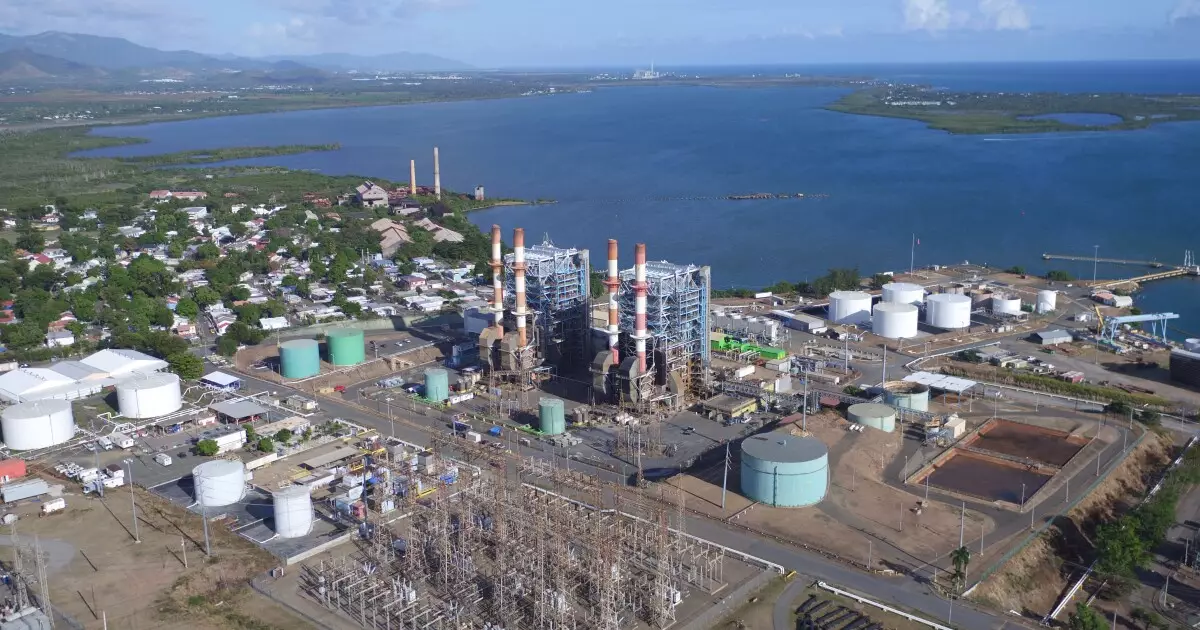The unfolding drama surrounding the Puerto Rico Oversight Board and the Puerto Rico Electric Power Authority (PREPA) is an emblem of the complexities and dilemmas that characterize public financial management. The current struggle over a staggering $3.7 billion in administrative expenses has highlighted some fundamental issues in how Puerto Rico, a U.S. territory, addresses its crippling financial challenges. This situation exposes underlying power dynamics not only between local authorities and bondholders but also questions the effectiveness of oversight mechanisms designed to stabilize the economy.
In this protracted confrontation, PREPA’s bondholders argue they are entitled to substantial compensation with claims that extend beyond typical secured creditor rights. They contend that their rights under bankruptcy laws provide a legitimate pathway for accessing the funds—money that is crucial for maintaining public services and economic viability. Yet the Oversight Board has labeled this claim as an attempt to sidestep a more equitable approach dictated by the larger commonwealth plan. Who, then, is truly entitled to these funds when the basic operational needs of the island hang in the balance?
A Battle of Legal Interpretations: The Language of Bankruptcy
At the heart of the dispute lies a fierce debate over statutory interpretation, a situation exacerbated by the messiness of bankruptcy law itself. The Oversight Board asserts that the bondholders should find their claims subordinate to other claims against Puerto Rico’s central government. They argue convincingly that simply crying foul through “constitutional avoidance” does not absolve the bondholders from evaluating their claims against the broader economic context laid out by the Commonwealth’s emergency fiscal plan.
One cannot help but question the bondholders’ reliance on a perceived ambiguity in legal language to push their agenda. It raises a broader concern about whether financial stakeholders are leveraging legal technicalities to pursue interests that may not serve the best interests of the general populace. If we allow such tactics to go unchecked, what precedent does that set for future negotiations and claims in the realm of public finance?
The Reality Check: Implications of a Failed Agreement
If both parties remain obstinate in their approach, the factors surrounding PREPA’s bankruptcy will not only threaten the financial façade of the utility company but also ripple through the socio-economic tapestry of Puerto Rico. Should PREPA emerge from bankruptcy unable to satisfy these claims, where does that leave the residents who depend on consistent power supply and infrastructure maintenance?
The bondholders argue that PREPA must face the music, and if unable to pay, reconsider its place under bankruptcy. The suggestion to dismiss the bankruptcy proceeding should raise alarm bells, as it would essentially allow for a receivership model that could further strip control from local governance. What would come next? A third-party receiver managing fund allocations might bolster creditor access, but would such a tactic ultimately serve the wider interests of Puerto Rican society?
It’s hard to ignore the bleak reality—the Puerto Rican economy is struggling from extreme debt, population decline, and uncertain recovery prospects. As the bondholders push for immediate cash disbursements, they are oblivious to—or perhaps uninterested in—the fact that a more sustainable path for the territory involves collaborative compromises that could allow PREPA to operate while providing essential services.
The Role of Oversight: Growth or Stagnation?
The Puerto Rico Oversight, Management, and Economic Stability Act (PROMESA) was created with the intention of enforcing fiscal discipline and restoring more significant economic stability. By confronting the bondholders, the Oversight Board assumes a role that could either foster progress or deepen disillusionment among Puerto Ricans, especially if stakeholders view this as yet another layer of complexity that inhibits genuine economic recovery.
Reforms in Puerto Rico must evolve beyond financial fixes—they need to embrace economic responsibility, transparency, and accountability. Whether it is through better fiscal governance or rethinking the bonds’ structures, systemic changes are inevitable. Only through concerted collaboration can Puerto Rico hope to escape this cycle of financial despair and begin mending its socioeconomic landscape.
This ongoing struggle, encapsulated in the looming $3.7 billion disagreement, is not merely a legal dispute over numbers; it is a fundamental fight over the very identity and future of Puerto Rico.


Leave a Reply